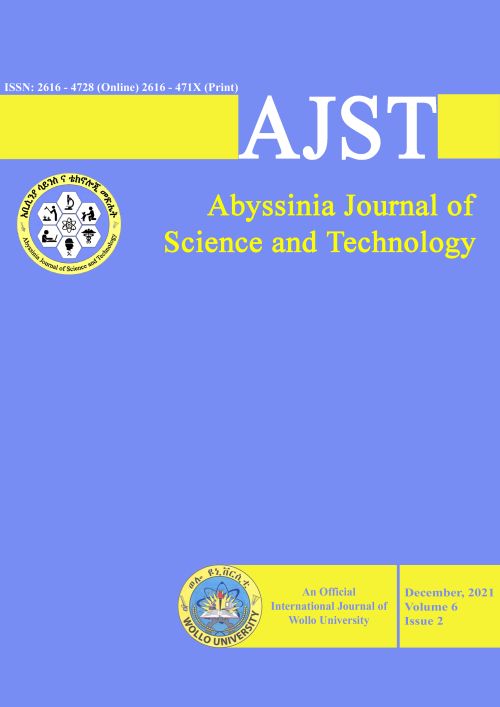Main Article Content
Timely Initiation of Complementary Feeding and its Associated Factors among Children 6-23 Months in Ethiopia: A Systematic Review and Meta-analysis
Abstract
In Ethiopia, various studies have been done in order to determine the proportion of infants who had initiated complementary food timely and its associated factors. The results of these studies were not consistent and had a big variability. Hence, the aim of this systematic review and meta- analysis is to estimate the pooled prevalence of timely initiation of complementary feeding and its associated factors among children 6-23 months in Ethiopia. Different databases were systematically searched. Studies reporting the proportion and associated factors of timely initiation of complementary feeding in Ethiopia were considered. The Cochrane Q test statistic and I2 test were used to assess the heterogeneity between the studies. A random effect model was computed to estimate the pooled prevalence of timely initiation of breastfeeding. In addition, the association between timely initiation of complementary feeding and Antenatal Care follow-up, place of delivery, postnatal checkup, women’s education, mother’s occupation, father’s education, marital status, child sex, place of residence was determined. Eighteen studies were finally included in this meta-analysis. The findings of this meta-analysis revealed that, the pooled prevalence of timely initiation of complementary feeding in Ethiopia was 55.64% (95% Confidence interval: 50.35, 60.93%). In this study, timely initiation of complementary feeding in Ethiopia was significantly low compared to the current global recommendation on complementary feeding. Women from rural area were less likely to initiate complementary feeding at six months as compared with women from urban areas. Mothers who give birth at home were less likely to initiate complementary feeding timely.






